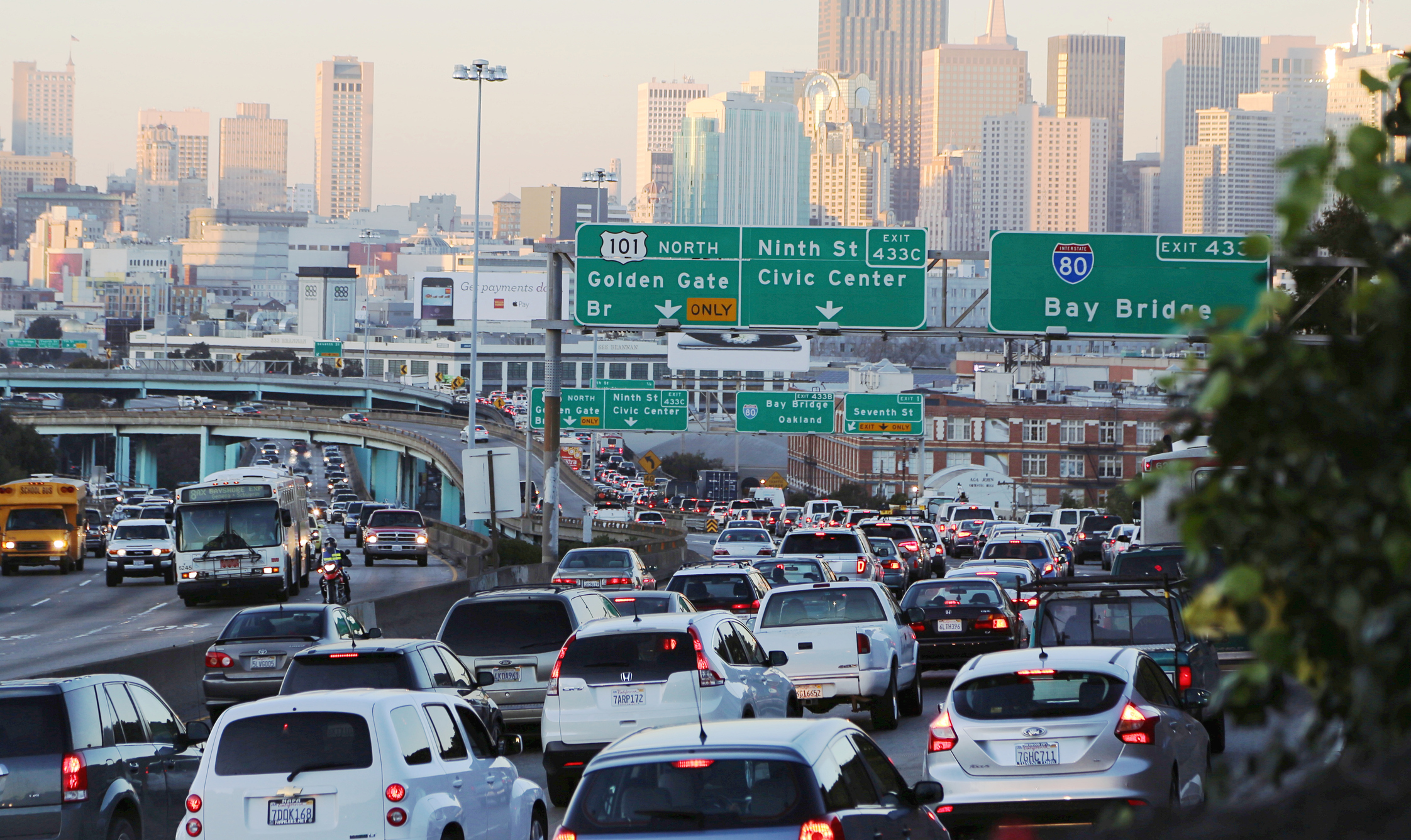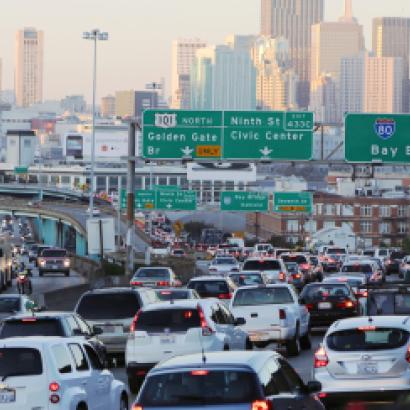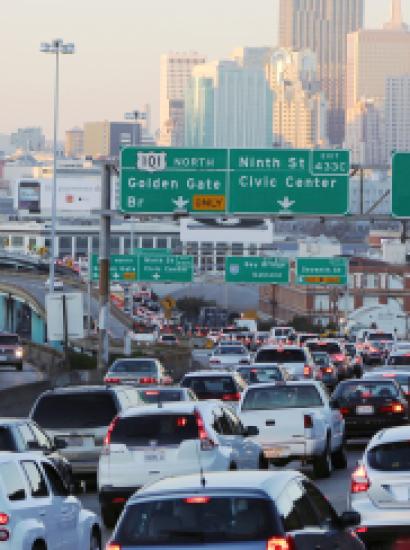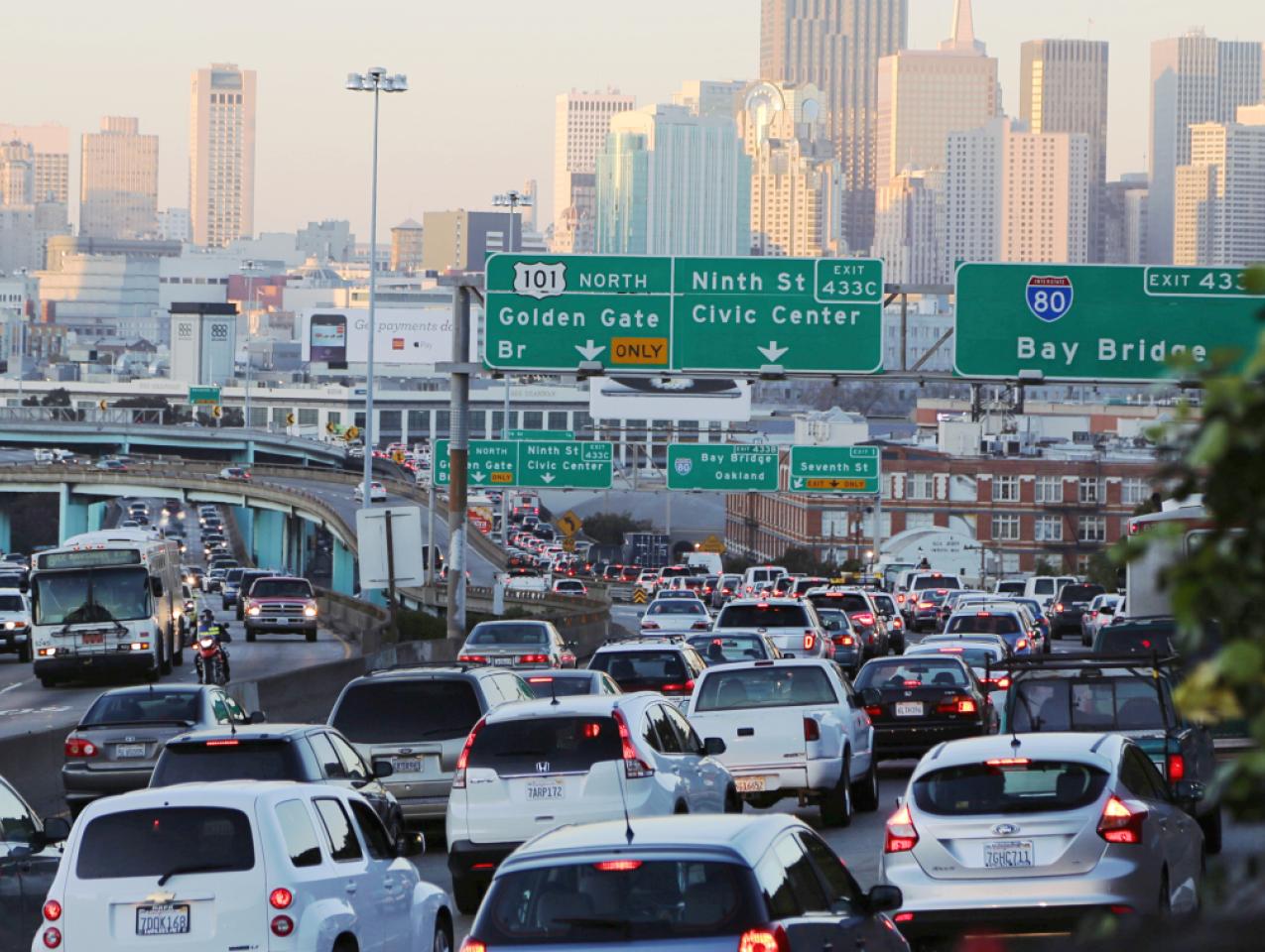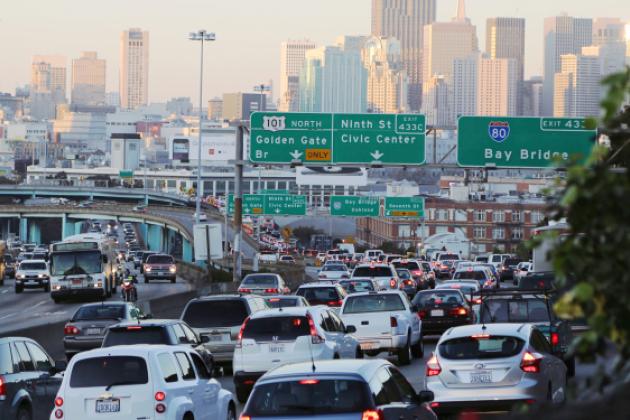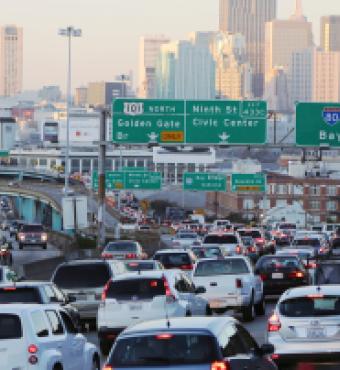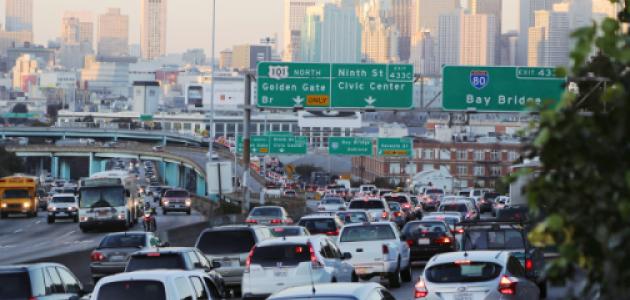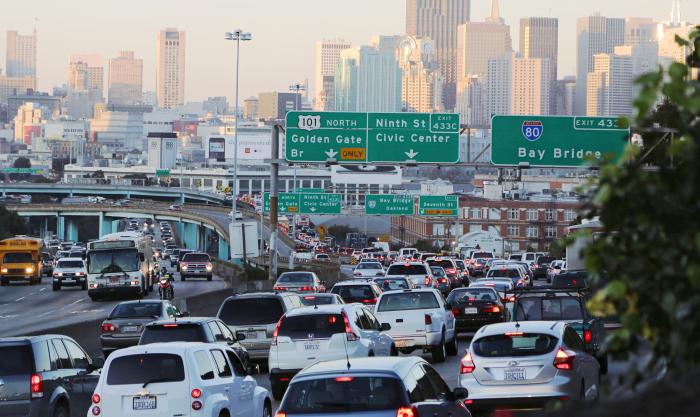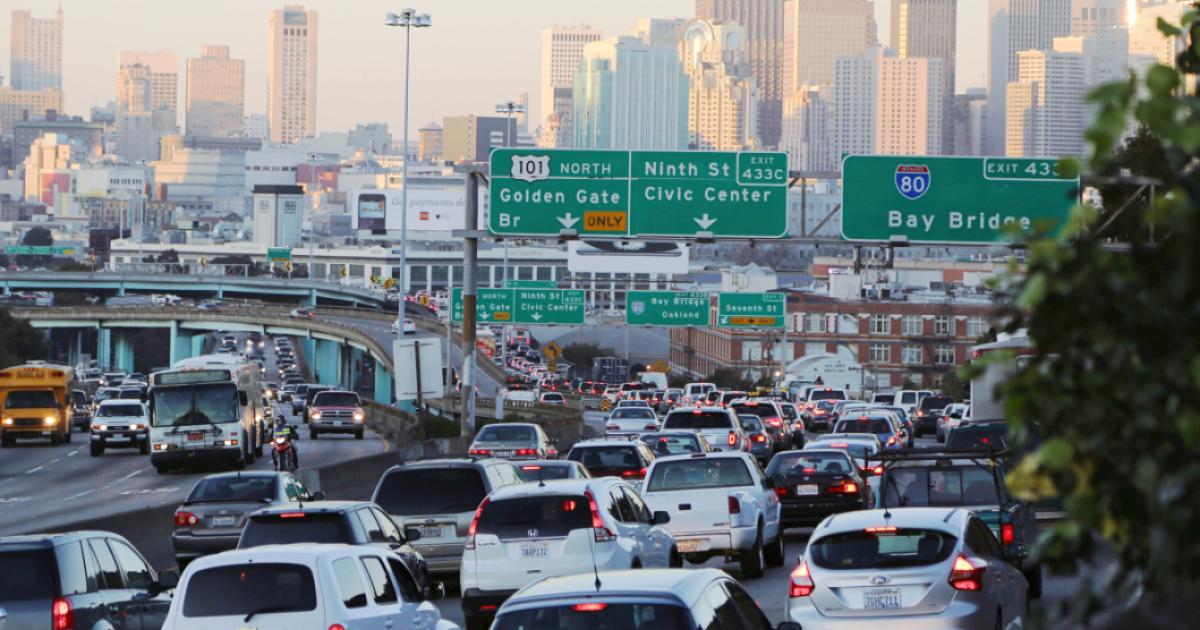- Economics
- Budget & Spending
- Politics, Institutions, and Public Opinion
- State & Local
- California
California practically invented the modern transportation system. Without our historic highway and road network, connecting farm and city, factories and ports, California would be Albania—a pretty coastline with an underperforming economy.
Our economic prosperity, social cohesion, and California lifestyle is dependent on continued maintenance, upkeep, and improvement of our mobility infrastructure. Sadly, until recently state leaders have ignored this responsibility.
Since the heavy lifting and pouring of the 1960s and 1970s, state leaders’ commitment to maintaining and upgrading transportation and water infrastructure has been replaced by, at best, ambivalence.
Billions have been spent on highways, roads, and transit, but the operation and integrity of these systems has fallen far behind user demand.
State transportation policy cleans our air but has starved our roads. The result has been a $100 billion shortfall in deferred maintenance for state highways and local streets and roads. One out of four bridges is in need of repair and transportation facilities are, in many cases, unsafe to operate and becoming more expensive each year to fix.
Last year, California’s State Legislature took an important step to fix the state’s most pressing transportation needs. After a hiatus of twenty-three years, it approved the Governor’s proposal to increase gasoline and diesel taxes and to increase fees for vehicle ownership, including a new tax on electric vehicles.
Senate Bill 1 was the first increase in base transportation revenues in more than two decades—during which the purchasing power of those revenues eroded from inflation, fuel economy of our vehicle fleet improved, and cars that don’t use gasoline at all were introduced and marketed.
As it turns out, no good deed goes unpunished.
Proposition 6, which appears on California’s November ballot, would roll back the revenue increases from the 2017 legislation. And it would condition any future revenue increase proposals on a statewide vote of the people. CalChamber, the leading advocate for California business at the State Capitol, opposes this measure and has joined the campaign to defeat it.
Here’s why:
Proposition 6 would eliminate $5 billion annually in dedicated, accountable funding for California’s transportation infrastructure. This destructive measure would jeopardize funding for more than 6,500 bridges and road safety, congestion relief, and road maintenance projects currently underway throughout the state.
The California Association of Highway Patrolmen, California Professional Firefighters, law enforcement, and first responders all oppose Prop 6 because it is a direct attack on the safety of local roads and bridges.
A recent study shows six of the nation’s top fifty most dangerous highways are in California, with Interstate 5 as the fourth most dangerous highway in the nation.
According to the US Department of Transportation’s 2017 National Bridge Inventory, 13,721 bridges in California are fifty-years old or older. That’s approximately the age of the bridge that collapsed in mid-August in Genoa, Italy—a work of art from the 1960’s that Italian engineers said had outlived its lifespan. Almost 2,000 of those aging bridges can be found in the Bay Area.
Every part of the state faces the dangers posed by bad roads.
According to the latest numbers from the National Highway Traffic Safety Administration, there were 3,600 fatalities on California roads in 2016.
All told, 89 percent of California counties have roads that are in “poor” or “at-risk” condition, and 1,600 of the state’s bridges and overpasses have been deemed structurally deficient and unsafe.
After years of delay and decay, progress is finally being made to make our roads and bridges safer. That all ends if Proposition 6 is approved.
Statewide, Proposition 6 would eliminate:
- 3,727 projects fixing potholes and repaving roads;
- 1,571 projects dedicated to improving road and driver safety;
- 554 bridge and overpass repair and replacement projects;
- 337 traffic congestion relief projects; and
- 453 projects improving public transportation.
By making the conditions of our roads and bridges worse, Proposition 6 also means that emergency response times for law enforcement, ambulances, and firefighters are all going to get longer.
Safe, reliable transportation infrastructure is vital to economic development and maintaining a healthy business climate that allows companies to thrive and create jobs. California needs roads and bridges that can move people and goods safely and efficiently.
Estimates are that by 2045 California’s highways will carry $3.9 trillion worth of goods every year. By stopping investments in freight corridors, highways, and freeways, Proposition 6 damages our economy by threatening businesses’ ability to get their goods to market in a timely manner.
The economic harm caused by Proposition 6 also hits drivers. California drivers who are stuck in traffic would lose approximately $2.6 billion every year. That’s in addition to the $739 per year the average California driver spends on front end alignments, shock absorbers, and tire repairs because of having to drive on bad roads. By stopping projects that fix our roads, Proposition 6 sneaks into drivers’ wallets and takes out their hard-earned money
Proposition 6 would also kill 68,000 jobs a year, not just in the transportation and construction sectors, but throughout the economy—including small businesses who support these sectors.
All in all, fixing our roads and bridges is estimated to generate $183 billion in economic growth over the next decade. Proposition 6 eliminates that growth, punching an unnecessary hole in the state’s economy.
The road and bridge repair projects currently underway in California follow a conservative playbook: they are pay-as-you-go, rather than more expensive borrowing, and they are “user pays” so those who receive the benefits are responsible for the costs.
President Ronald Reagan embraced this user-fee model when he increased the federal gas tax in 1982. At the time, President Reagan said “When we first built our highways, we paid for them with a gas tax, a highway user fee that charged those of us who benefited most from the system. It was a fair concept then, and it is today.”
Every Californian has an interest in ensuring our transportation funds are spent as intended. Fortunately, California voters passed Proposition 69 in June, directing these funds only for transportation improvements and preventing the legislature and governor from diverting them for other purposes. In fact, every single dollar of the gas tax is dedicated to road and transportation improvements and cannot be raided or diverted.
It’s time to embrace an actual solution to our state’s crumbling infrastructure. It’s time to put public safety first by not jettisoning thousands of road and bridge safety projects all over the state.
Loren Kaye, a past contributor to Hoover’s Eureka web channel, is president of the Sacramento-based California Foundation for Commerce—an affiliate of the California Chamber of Commerce that serves as a “think tank” for California’s business community.







